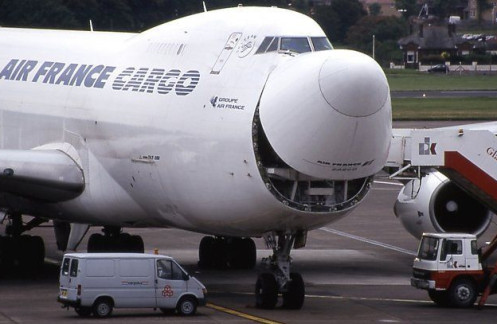We came out of the initial discussions knowing that we had called on the right people. The team were highly instructive and really grasped both our needs and the specifics of our activity. They managed to integrate all our constraints, which was no mean feat.Sébastien NOLIBOISSteel Mill PROCESS Manager, APERAM
APERAM, a global player in the metallurgy sector, produces about 2.5 million tonnes of stainless steel per annum. The group has many units, and its Imphy site (in Burgundy, France) specializes in developing, producing, and processing nickel alloys.
The Imphy site has an annual output of 36,000 tonnes of high-performance alloys across its three plants that produce billets and ingots. The billets are converted by the wire rolling mill (to produce drawing stock) while the ingots are converted by the “flat” cold rolling mills (to produce metal strips).
Alloys have a wide variety of applications (automobile, aeronautics, Oil & Gas, and other sectors). Precise calculation of the composition is required in each case to obtain output that meets customers’ specifications. The complex nature of the industrial processes and the very high expense of raw materials (cobalt, nickel, copper, chrome, molybdenum, etc.) also calls for precision when using them.
In 2018, APERAM ALLOYS IMPHY embarked on a project to modernize its materials management supervisory computing system that is shared by the three steel mills at Imphy. INFOSAT, an industrial process solutions expert and long-standing partner of the metallurgist, approached EURODECISION, the business analytics specialist when preparing its bid. The two companies had successfully worked together drawing on a similar issue with their complementary and relevant skills, which persuaded APERAM ALLOYS IMPHY to assign the project to them.
EURODECISION was thus tasked with developing the calculation module to optimize the furnace charges of raw materials. After discussions with the business teams and conducting a functional study to identify the various calculation parameters (maximum percentage per raw material, use of available scraps, mass yield, cost, etc.), EURODECISION produced a prototype. In keeping with the APERAM ALLOYS IMPHY wishes, the user retains control over the metallurgy sector rules (e.g.: conversion coefficient data of the elements as per the grade). The latter are thus separate from the computer code developed by the mathematicians. Once the tests had been completed and the results validated, the application was integrated into the company’s IS and has been running since January 2019.
Now prior to every “casting” operation, the technicians can run the calculation and print out the “charge sheet” that details the list of materials to be loaded for the most optimum result, making allowance for the constraints of the alloy in question. They can adjust it if necessary, to build in any additional wishes such as maintaining stocks for future casting operations.
In the next few months, features that are ready will also be harnessed. For example, the “Simulation” mode examines the impact of inserting an additional casting into a schedule, while the “Campaign” mode calculates several consecutive castings making allowance for the scraps they generate.
With the hindsight of just a few weeks, APERAM ALLOYS IMPHY considers that the charge calculation module fully matches its expectations and justifies the investment it made. The idle inventory of raw materials has been tapped and it is easier to optimize scrap take-up. Hence, the manufacturer intends to perpetuate its use.






